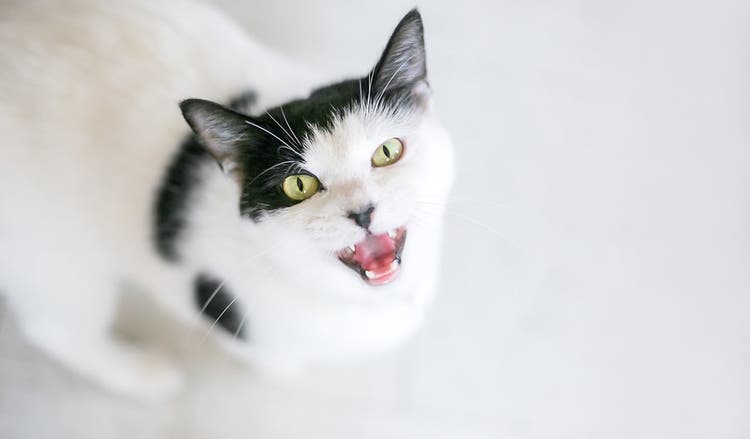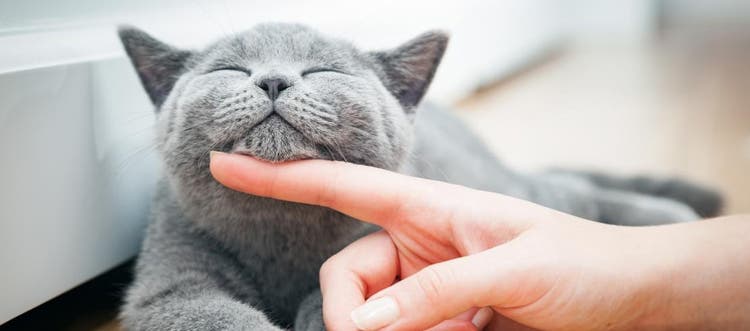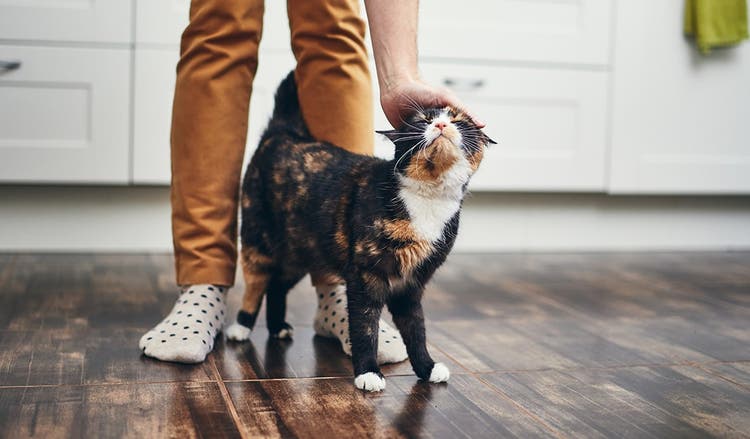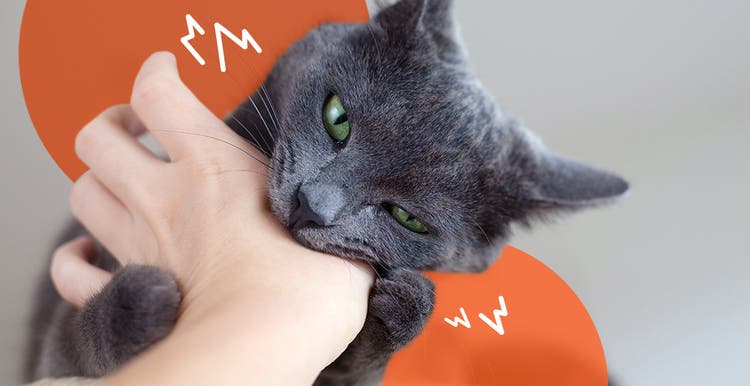Cats purr for several reasons. Here’s why.
Cats and kittens are surprisingly vocal animals, communicating with meows, trills, hisses, growls, yelps and shrieks. But the most fascinating and mysterious noise they make is the purr. There’s certainly something relaxing about this unique sound, but what does it mean? Discovering the meaning behind your cat’s purrs can help you communicate better and deepen your bond.
Why Do Cats Purr?
A cat’s purr can have a number of different meanings that all revolve around their emotional state. Here are four reasons your cat purrs.
1. Cats Purr Because They’re Content
Perhaps the most obvious reason: Cats may purr because they’re warm, cozy and content, especially when curled up on a human’s lap.
2. Cats Purr to Calm Themselves
While it’s true that cats purr during moments of extreme relaxation, animal experts believe cats also purr when they’re experiencing high amounts of stress or pain, such as during a vet visit and even when giving birth.
Scientists believe cats purr to calm themselves, meaning they’re just as likely to do it in a stressful or painful situation as they are when curled up in their owner’s lap. The low-frequency vibrations that purring creates help them ease their breathing and soothe tension.
3. Purring Helps with Healing
Purrs do more than simply calm your cat. Scientists also believe these vibrations can help heal injuries, repair and build muscles and even act as painkillers — which might explain why injured or sick cats choose to expend valuable energy on purring. It might also explain why some cats seem to recover from surgery more quickly than dogs and suffer fewer complications.
4. “Solicitation Purrs” Help Your Cat Ensure Their Needs Are Met
Purring can also help your cat in more direct ways. Scientists have identified a particular type of purring known as the “solicitation purr” that cats appear to use exclusively as a way to obtain something from their owner — either affection or food.
The solicitation purr is a cross between a meow and a purr, and is close in frequency to the sound of a crying baby — a noise we are naturally programmed to respond to.
DID YOU KNOW?
A cat’s purr could have benefits for humans, too. A large study showed that cat owners were less likely to die from cardiovascular disease compared to those who never owned a cat.1
What If My Cat Doesn’t Purr?
Every cat purrs in a different way and at a different volume. Some cats purr in almost complete silence, and the only way to tell they’re purring is by touching their neck or throat to feel the vibration. Other cats don’t appear to purr at all; excluding an injury to the vocal cords, scientists are still trying to understand why.
Feral cats are less likely to purr than domestic cats, leading to a hypothesis that feral cat mothers discourage their kittens from purring to prevent them from attracting predators.
Scientists also note that feral cats are much less vocal than their domesticated counterparts, often only meowing and purring as kittens and then abandoning the habits during adulthood. This may be because domestic cats develop their vocal tendencies to better communicate with humans. A purring cat may solicit petting or treats, and a meowing cat may get dinner much faster than a quieter companion.
Whether your cat purrs frequently or doesn’t purr at all, keep in mind that purring is only one of many ways your pet can communicate with you. With enough quality time together, you can learn the unique ways your cat communicates their love to you.
References
1. Qureshi, Adnan I, et al. “Cat Ownership and the Risk of Fatal Cardiovascular Diseases. Results from the Second National Health and Nutrition Examination Study Mortality Follow-up Study.” Journal of Vascular and Interventional Neurology, Zeenat Qureshi Stroke Research Center, Jan. 2009, https://pubmed.ncbi.nlm.nih.gov/22518240/.
Related Articles

New Cat or Kitten: Our Downloadable Guide
Thinking about adding a feline to the family? There are so many emotional, social and physical benefits to owning a cat. Check out our free guide, also available to download!





